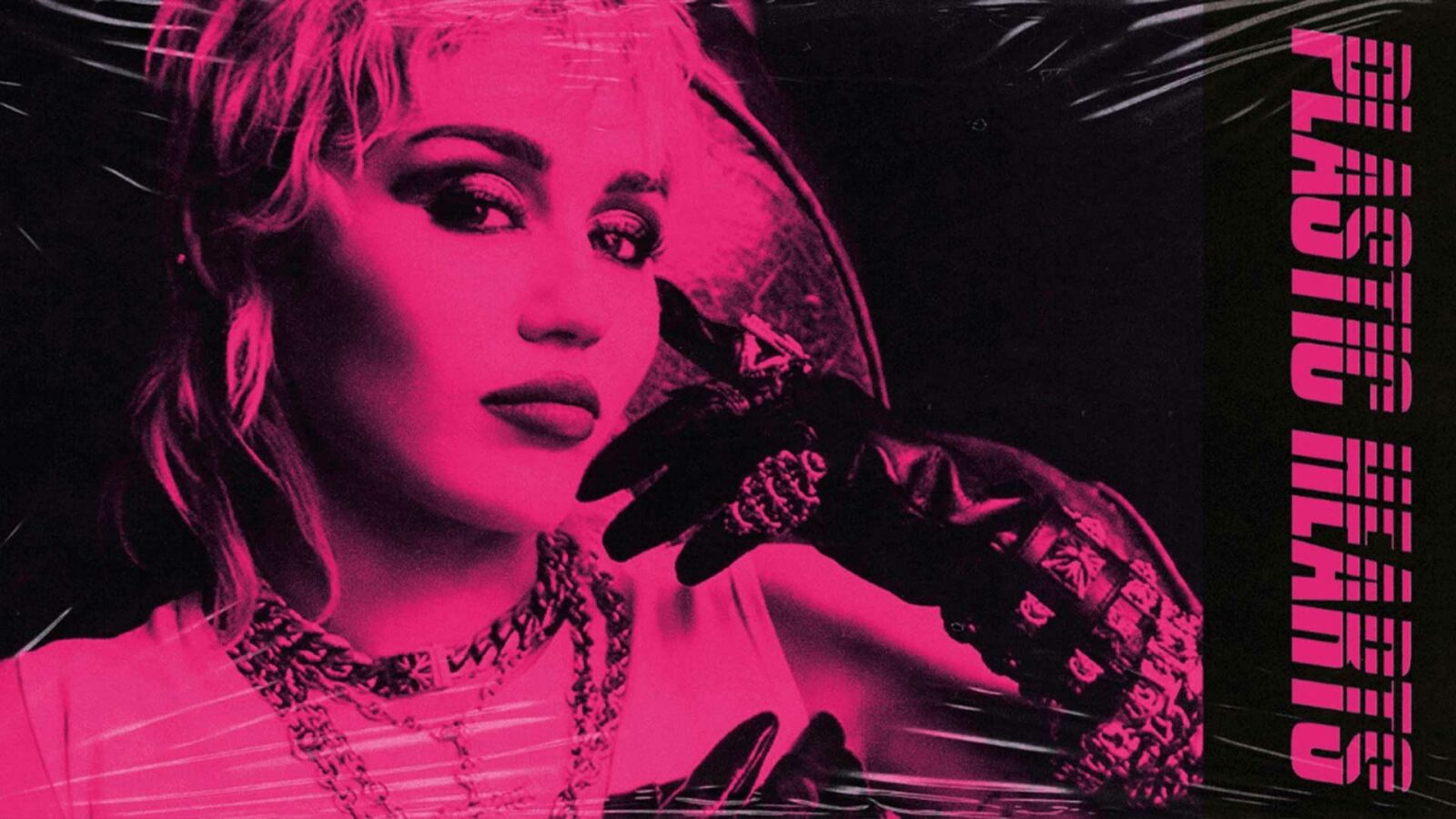Following her many physical and musical transformations, Miley Cyrus swings into the rock scene with a settled sense of self through Plastic Hearts.
While everyone is praising this apparent ascension of Miley Cyrus into a glorious rock era—and for good reason—people seem to forget that as early as her pre-teen years, she was already rocking out the show? Sure, the words rock and rock star gets thrown around a lot like chump change, especially in the plane of celebrity renown and reverence, but while she was wigging out as Hannah Montana and riding through the notoriously sanitized Disney filters in her Breakout and Time Of Our Lives phase, inciting a rebellion of self-discovery in Can’t Be Tamed, Bangerz, Miley Cyrus and Her Dead Petz, and returning to her roots in Younger Now, Miley Cyrus was truly living the best of many worlds. Straddling the defiance of rock, she traipsed along everything from saccharine pop to the languid drawl of country with an ease that was held together by the common denominator that held her musical evolution—her gritty, gravelly voice.
While this isn’t as experimental and trippy as say, her brush with psychedelic pop and outrageous as smashing through walls in a wrecking ball, Miley Cyrus realizes her most confident and actualized self in Plastic Hearts. In the explosion of rock in many permutations, the 15-track decidedly punk fare skids through known thoroughfares such as 80s new wave, 90s alt-rock, and new millennium angsty girl rock. From the get-go, she bursts past the first strums of the bass guitar with the explicitly taunting, WTF Do I Know, and then slides into the titular track, Plastic Hearts that at this point has already fully convinced you that this is by no means an attempt at a diluted alter ego that many have fallen trap to in their rebellion. Assured and authentic, Miley Cyrus sings, “I just wanna feel, I just wanna feel something,” perhaps alluding to a sense of liberty that courses through the record.
Before you loose yourself to head-banging and leg-thumping dictates of rock, Miley Cyrus snaps you out of the reverie with the surprising slow but soaring, Angels Like You, which might be a track or two early in terms of the typical. However, it all makes sense with the sparkling disco and glam rock coalition with Dua Lipa in Prisoner. “Why can’t you, why can’t you just let me go,” they sing back and forth, before Plastic Hearts revs the rock with lingering licks of synth and throbbing bass lines in the irreverent Gimme What I Want. At this point, you are fully taken into the gravity of the genre, with an awareness of the body that makes you feel every shift in instrumentation deep within the skin. With shoulders moving in an undulating wave from side-to-side and your head dangling along the motion, you submit to the call of Miley Cyrus and rock legend, Billy Idol, in Night Crawling. It wouldn’t be long for the proverbial dust of the duet to settle and Plastic Hearts amps up the glimmer and glitter with the gleaming wink and nod allegiance of independence that is Midnight Sky.
In an effort of equilibrium, and maybe to allow one to catch a lungful of air, Miley Cyrus calms down in High, an unplugged-ready vocal stretch, and the introspective, Hate Me. Speaking of a breath, Bad Karma slinks itself all too quickly with a rhythmic exchange of salacious moans and exhales. With heavy-handed guitar work and pounding percussions, Miley Cyrus goes at toe-to-toe with another icon of rock, Joan Jett, who dishes out her signature singing with ad-libs of advice that add a lash of warmth to what has shaped to be quite the smoking play of music. Rounding out the time warp of rock ‘n roll are the distilled deliverance of Never Be Me and the appropriately glow of Golden G String. “I was thinking about my life, and the questions made more questions,” she writes, clearly essaying yet another slice of her life into a searing truth. “I was trying to own my power, still I’m trying to work it out. And at least it gives the papers something they can write about.”
Before she turns around and walks off in a dramatic finish, Miley Cyrus drags her heels a bit longer and sticks it in the ground with Edge Of Midnight (the Midnight Sky remix featuring Stevie Nicks), as well as of the definitive live performances of her Plastic Hearts era, Hearts Of Glass and Zombie.
As she wails and warbles through the rock classics, it becomes clear that Miley Cyrus not only shines in this musical offering, but she is also at her most confident in recent years. In Plastic Hearts, she fully lets go of any pretense and inhibitions, draining any dregs down the drain. Far from being a performative trope, this is no misguided wannabe angsty rock star attempt, but a respect-wrought right to rock out as she pleases.





